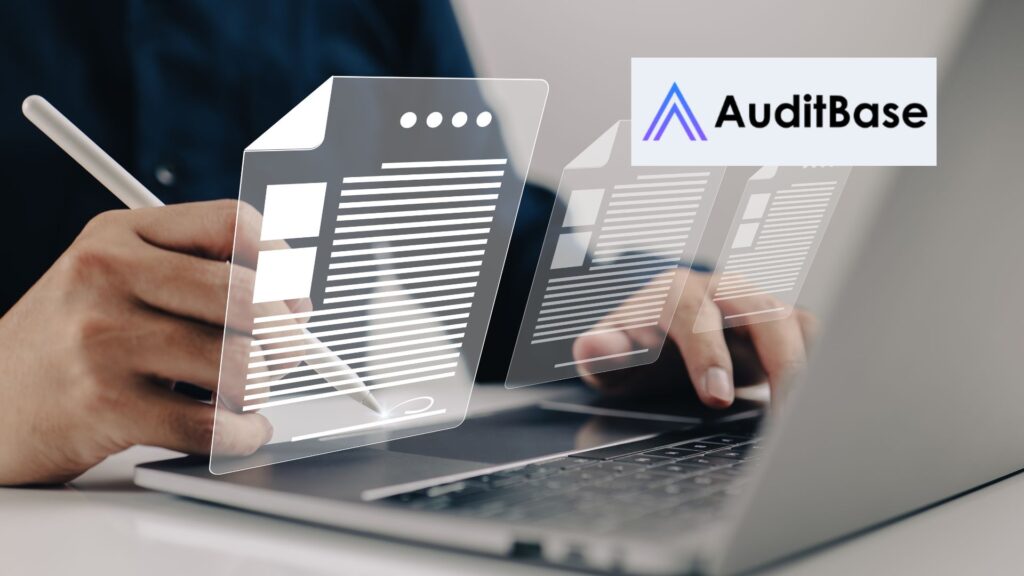World of blockchain technology, security has become a critical component of any project involving smart contracts. As decentralized applications (dApps) and blockchain projects gain traction, ensuring that smart contracts are secure from vulnerabilities is paramount. Solidity audit tools and Solana contract scanners play a crucial role in this process, particularly for Ethereum and Solana networks. These tools help identify weaknesses and ensure that smart contracts function as intended without any risks to users or developers.
What Are Solidity Audit Tools?
Solidity is the primary programming language used for developing smart contracts on the Ethereum blockchain. Given the complexity of these contracts and their irreversible nature once deployed, a single vulnerability can lead to significant financial losses. Solidity audit tools are designed to perform thorough reviews of smart contracts written in Solidity, ensuring they are free of bugs, vulnerabilities, and any other potential issues.
Key Functions of Solidity Audit Tools
- Automated Code Analysis: Solidity audit tools automatically analyze the codebase, scanning for known vulnerabilities and patterns that could lead to security breaches. This process involves checking for issues like reentrancy attacks, integer overflows, and underflows.
- Manual Code Review: While automated tools are effective, they can sometimes miss nuanced vulnerabilities that a skilled auditor might catch. Solidity audit tools often include functionalities that allow auditors to perform manual code reviews, ensuring that even the most subtle issues are identified.
- Comprehensive Reporting: After the analysis, these tools generate detailed reports that highlight vulnerabilities, categorize them by severity, and offer suggestions for remediation. This helps developers understand the risks associated with their contracts and provides a clear roadmap for fixing issues.
- Optimization Suggestions: Beyond security, some Solidity audit tools offer recommendations for optimizing the smart contract code. This can include reducing gas consumption, improving execution efficiency, and ensuring that the contract is economically viable for users.
Popular Solidity Audit Tools
Several Solidity audit tools have gained popularity due to their effectiveness and reliability:
- MythX: A comprehensive security analysis tool that integrates with various development environments. MythX provides deep analysis by scanning for vulnerabilities and offering detailed reports.
- Slither: Developed by Trail of Bits, Slither is a static analysis tool that runs fast, identifies potential security risks, and helps with code optimization.
- Securify: Created by the Ethereum Foundation, Securify focuses on both security and functional correctness, offering audits based on formal verification methods.
- Oyente: One of the earliest audit tools, Oyente performs symbolic execution to identify vulnerabilities in smart contracts, making it a pioneer in the field.
The Role of Solana Contract Scanners
While Ethereum has been the dominant player in the smart contract space, Solana has emerged as a formidable competitor due to its high throughput and low transaction costs. As Solana gains popularity, the need for secure smart contracts on this network has become increasingly important. Solana contract scanners are specialized tools designed to audit smart contracts written for the Solana blockchain.
Key Functions of Solana Contract Scanners
- Code Vulnerability Detection: Similar to Solidity audit tool ethereum, Solana contract scanners are designed to identify vulnerabilities in smart contracts. These scanners are tailored to the Solana ecosystem, which has different architectural nuances compared to Ethereum.
- Integration with Solana’s Programming Framework: Solana contract scanners are integrated with Solana development frameworks, such as Anchor, making them essential for developers who build decentralized applications on Solana.
- Security Analysis: These scanners perform a thorough security analysis, including checks for logic flaws, race conditions, and potential exploits that could compromise the integrity of the smart contract.
- Performance Optimization: Solana’s unique Proof of History (PoH) consensus mechanism requires that smart contracts be highly optimized for speed. Contract scanners often provide recommendations to ensure that contracts are not only secure but also optimized for performance.
Popular Solana Contract Scanners
- Anchor Audit: This tool is part of the Anchor framework and focuses on smart contracts built using Anchor. It scans for security issues, logic errors, and optimization opportunities.
- Neon Labs: Neon Labs offers tools and environments that allow Ethereum smart contracts to run on Solana. It provides scanning capabilities to ensure that contracts are secure when ported from Ethereum to Solana.
- Solana FM: Solana FM is a block explorer and analytical tool that also offers smart contract scanning services, focusing on contract performance and security.
Why Security Audits Are Crucial in Blockchain Development
Blockchain technology is based on the principles of decentralization and immutability. While these principles offer transparency and security, they also introduce risks. Once a smart contract is deployed on the blockchain, it cannot be altered or removed. This immutability means that any vulnerabilities in the contract can be exploited by malicious actors, leading to potentially catastrophic consequences.
Financial Risks
A vulnerability in a smart contract can lead to financial losses for users and developers. For instance, in decentralized finance (DeFi), where billions of dollars are locked in smart contracts, even a small bug can lead to the loss of user funds or the draining of liquidity pools.
Reputational Damage
Beyond financial losses, security breaches can severely damage the reputation of a project. Users are likely to lose trust in a platform if their funds are compromised due to a poorly written smart contract. This can result in a loss of user base and a decline in the project’s value.
Legal Implications
In some jurisdictions, developers and companies could face legal consequences if their smart contracts are found to be insecure and lead to financial losses for users. Regulatory bodies are increasingly scrutinizing blockchain projects, making security audits not just a best practice but a legal necessity.
The Ethereum and Solana Ecosystem: A Comparative Analysis
While Ethereum and Solana both offer platforms for smart contract development, they differ significantly in their architecture, consensus mechanisms, and development ecosystems.
Ethereum: The Pioneer of Smart Contracts
- Consensus Mechanism: Ethereum uses a Proof of Stake (PoS) consensus mechanism, which is secure and decentralized but can be slow and expensive in terms of transaction fees.
- Development Tools: Ethereum has a mature ecosystem with a wide array of development tools, including Solidity audit tools. The extensive community support makes Ethereum an attractive platform for developers.
- Security Focus: Given its long history and the high value of assets on the network, Ethereum has a strong focus on security, with numerous audit tools and best practices established over the years.
Solana: The High-Performance Alternative
- Consensus Mechanism: Solana uses a unique combination of Proof of History (PoH) and Proof of Stake (PoS), allowing it to achieve high throughput and low transaction costs.
- Development Tools: Solana’s ecosystem is rapidly growing, with tools like Solana contract scanners emerging to support the development of secure smart contracts. However, the ecosystem is still catching up to Ethereum in terms of the availability of tools and community resources.
- Performance Focus: Solana’s architecture is optimized for speed and scalability, making it an attractive option for developers looking to build high-performance dApps. However, this focus on performance requires that contracts be highly optimized, adding an extra layer of complexity to development.
Best Practices for Using Solidity Audit Tools and Solana Contract Scanners
To maximize the effectiveness of Solidity audit tools and Solana contract scanners, developers should adhere to the following best practices:
1. Perform Regular Audits
- Regularly audit your smart contracts, especially before any major deployment or update. Continuous auditing ensures that any new vulnerabilities introduced during development are identified and addressed promptly.
2. Use Multiple Tools
- Different audit tools may detect different issues. It’s advisable to use a combination of Solidity audit tools and Solana contract scanners to get a comprehensive view of your smart contract’s security.
3. Engage Third-Party Auditors
- While automated tools are invaluable, third-party auditors bring an extra layer of scrutiny. They can provide insights that might be missed by automated scanners and offer unbiased assessments of your contract’s security.
4. Stay Updated with Best Practices
- The blockchain space is evolving rapidly. Keeping up with the latest security best practices, tool updates, and vulnerability databases is crucial for maintaining the security of your smart contracts.
5. Test in Staging Environments
- Before deploying contracts to the mainnet, thoroughly test them in staging environments. This helps identify potential issues without the risk of exposing them on the live network.
6. Implement Fail-Safe Mechanisms
- Include fail-safe mechanisms in your smart contracts, such as circuit breakers, to halt operations in case of suspicious activity. This can prevent the exploitation of vulnerabilities while a fix is being implemented.
Conclusion: The Importance of Choosing the Right Audit Partner
As the blockchain landscape continues to expand, the need for secure smart contracts becomes even more critical. Whether you’re developing on Ethereum using Solidity or building high-performance dApps on Solana, the security of your smart contracts should be a top priority. Solidity audit tools and Solana contract scanner are essential for ensuring that your contracts are free from vulnerabilities, optimized for performance, and ready for deployment on the blockchain.
However, using these tools effectively requires expertise and experience. This is where professional audit services like AuditBase come into play. AuditBase specializes in providing comprehensive smart contract audit services tailored to your specific needs. With a team of experienced auditors and a suite of advanced tools, AuditBase ensures that your smart contracts are secure, efficient, and compliant with the latest industry standards.
By choosing AuditBase, you’re not just investing in a security audit; you’re partnering with a team that understands the complexities of blockchain development and is committed to helping you build secure, successful projects.



